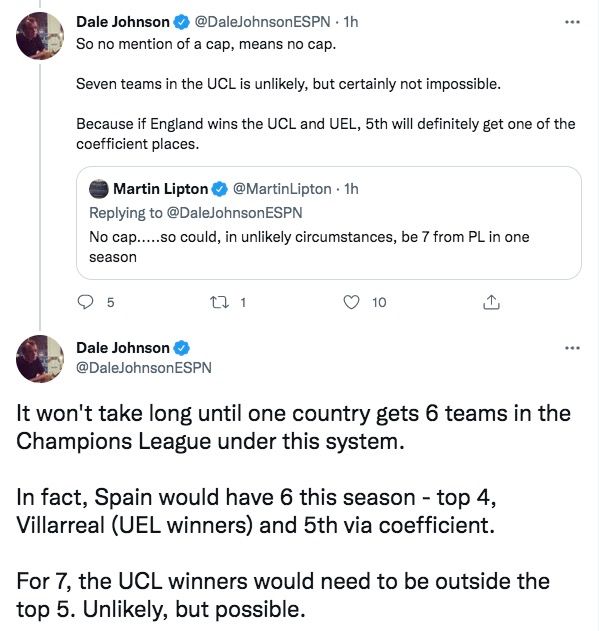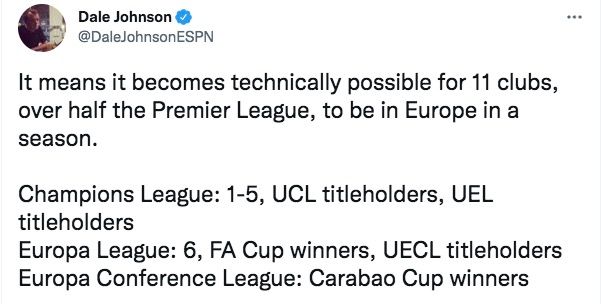UEFA approved radical changes to the Champions League format earlier this week that will change up the competition from the 2024/25 season.
Firstly, the group stage will rise from 32 to 36 teams.
There had been plans to give two of those spots to clubs based on their previous European performance but that's now been scrapped.
Instead, two of the four additional spaces will be awarded on the performance of a country's clubs in Europe in the previous season.
If that rule was in place this season, the Premier League and the Dutch Eredivisie would receive those extra places which would be given to the club that finished one position below the current Champions League qualification slots.
Given that Premier League clubs often reach the latter stages of European competitions, it's likely we will see five English clubs in the Champions League each season.
However, there's a scenario where there could be as many as SEVEN.
According to ESPN's Dale Johnson, there is no longer a cap on the number of teams from the same association that can enter the Champions League.
And there's a scenario - albeit unlikely - in which seven English clubs will be in Europe's elite competition.
How seven English clubs could play in Champions League
Here's an example of how it could happen:
1st. Man City
2nd. Liverpool
3rd. Man Utd
4th. Spurs
5th. Arsenal
6th. Chelsea (win the Champions League)
7th. West Ham (win the Europa League)
The top four would naturally qualify for the Champions League via their league position. As would Chelsea for winning the Champions League and West Ham for winning the Europa League. But Arsenal would also qualify because of the performance of English clubs that season.
Remarkable.
As we say, unlikely but it's possible.
That could also lead to as many as 11 English clubs in European competitions in the same season!
How will the new Champions League format work?
We know that the Champions League group stages will have 36 teams.
And instead of eight groups of four, there will be one big group with each side playing eight matches over 10 match weeks - four at home and four away.
The top eight will progress to the knockout stage, while those from 9th to 24th will compete in a two-legged play-off to also get through.
The 16-team knockout stages will, thankfully, remain untouched.
"Uefa has clearly shown today that we are fully committed to respecting the fundamental values of sport and to defending the key principle of open competitions, with qualification based on sporting merit, fully in line with the values and solidarity-based European sports model," said Uefa president Aleksander Ceferin.
"We are convinced that the format chosen strikes the right balance and that it will improve the competitive balance and generate solid revenues that can be distributed to clubs, leagues and into grassroots football across our continent while increasing the appeal and popularity of our club competitions."

















